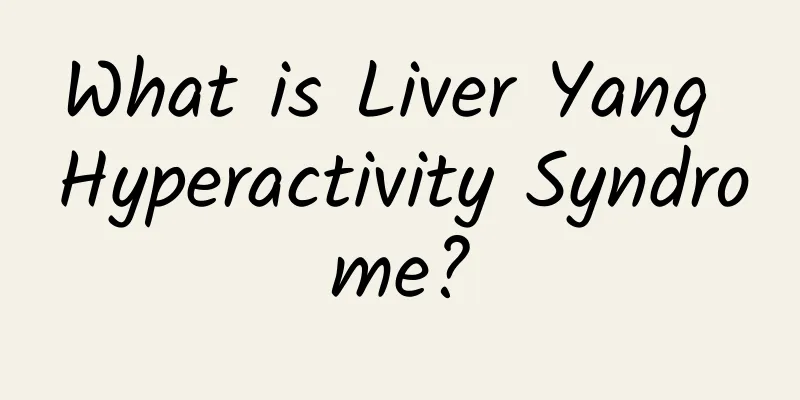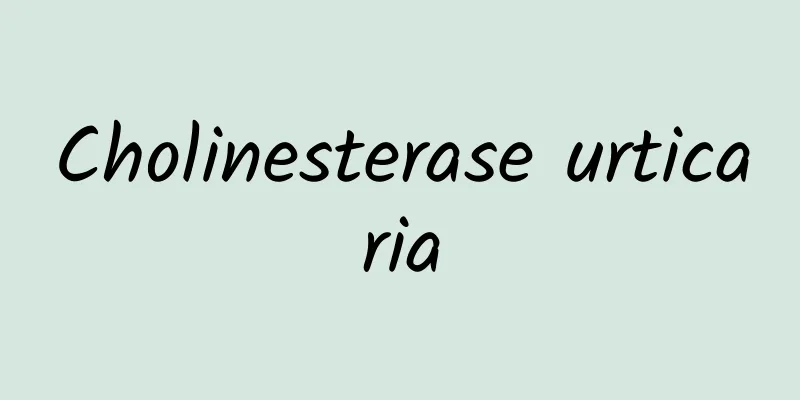Why does my heart suddenly beat violently when I sleep?

|
If your heart suddenly starts beating violently while you are sleeping, you must pay attention to it, as it may be caused by palpitations, which is a relatively common symptom and falls into the category of heart disease. If such people are emotionally excited and tired during the day, this phenomenon is likely to occur when they sleep at night. At this time, you must go to the hospital for examination in time to avoid harm to your health. Why does my heart suddenly beat violently when I sleep? 1. Physiological palpitations This is common. For example, mental tension, whether it is excitement or fear, will cause the heart rate to accelerate and cause palpitations due to the special function of the nervous system. This type of palpitations has no pathological basis, is not caused by disease, will not last too long, and does not require treatment. Vigorous exercise can also cause palpitations because it requires the blood to transport more energy and oxygen, and the heart must beat faster to pump out a large amount of blood. People who exercise regularly have sufficient heart function reserves and may not feel palpitations; people who do not like to exercise normally will not be able to cope with the sudden strenuous exercise and may experience palpitations. Physiological palpitations disappear immediately after the stimulating factors are removed. 2. Palpitations caused by external factors of the heart Some illnesses, such as fever. Hyperthyroidism. anemia. Bleeding. Menopausal syndrome, etc., can also cause palpitations. Patients with fever often have a faster heartbeat because when they have a fever, their basal metabolism increases and the fever consumes a large amount of nutrients and oxygen, which can only be compensated by the heart working harder and pumping more blood. After the fever subsides, palpitations will naturally improve. Patients with hyperthyroidism will have an increased heart rate and stronger heartbeat due to increased basal metabolism. Some patients may also have arrhythmia, and they will naturally feel palpitations and discomfort. Heart palpitations caused by anemia and bleeding are because when the number of red blood cells in the blood decreases, the blood’s function of transporting oxygen and nutrients can no longer be fulfilled, so the body can only make the heart work harder to compensate. Heart palpitations in menopausal women are related to changes in the function of the endocrine system and generally improve after 2-3 years or appropriate treatment. Other diseases, such as neurasthenia, lung disease, etc., may also cause palpitations to varying degrees. 3. Palpitations caused by heart disease The heart itself is diseased, whether it is the myocardium. Endocardium. Heart valves. Disease of the pericardium or any part of the coronary arteries that supply blood to the heart can affect heart function. When the heart is sick, it must contract faster to complete its task, resulting in palpitations. Common heart diseases that cause palpitations include acute or chronic rheumatic heart disease, valvular heart disease, various congenital heart diseases, myocarditis or pericarditis, etc. For young people, common diseases are coronary artery sclerosis and hypertensive heart disease. Patients with heart disease, in addition to palpitations, may also experience shortness of breath, pre-heart pain and discomfort, and bluish limbs or lips. The patient's palpitations are relieved when he is at rest. |
<<: What is chewing while sleeping?
>>: When I woke up from sleep, my mouth was crooked.
Recommend
Wolfberry can strengthen yang
Wolfberry is a kind of medicinal material that ca...
What causes frequent lip blisters?
Many people mistakenly believe that mouth blister...
Does aloe vera work for acne?
Acne is one of the most familiar skin diseases to...
Pain in lower abdomen near genitals
A dull pain in the lower abdomen near the genital...
What should you pay attention to when doing scraping?
Gua Sha is a very common Chinese medicine therapy...
Wrist ganglion cyst
There are many common diseases in life. When it c...
Symptoms of a transient ischemic attack
Many people think that their parents are stingy a...
How to Get Rid of Corns
Corns are a common foot disease, which is related...
Heart rate increases after taking diet pills
A fast heartbeat after taking diet pills is a sid...
What to do if the endometrium is thick
The thickening of the endometrium in young women ...
What are the symptoms of Yin deficiency in children? What will the tongue show?
My baby's palms are always sweaty, what's...
Thrombocytopenia Subcutaneous hemorrhage
Subcutaneous bleeding due to thrombocytopenia is ...
Chinese medicine prescriptions for cor pulmonale, recommended Chinese medicine prescriptions
The treatment of cor pulmonale must not be ignore...
What are the symptoms of liver discomfort
The liver is the largest digestive organ in the h...
What are the benefits of drinking dandelion decoction?
Dandelion is both a wild vegetable and a traditio...









